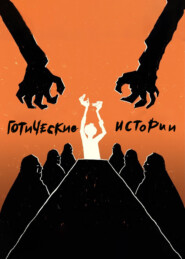По всем вопросам обращайтесь на: info@litportal.ru
(©) 2003-2024.
✖
Library of the World's Best Mystery and Detective Stories
Настройки чтения
Размер шрифта
Высота строк
Поля
"Well, what next? Do I need tongs to drag the words out of your mouth?"
"What next? Why, your honor knows how it is at night, under the lamplight. You see and then you don't see – that's the way it is. I turned around – Don Nicasio had plunged through the doorway of his home – just by the entrance to the little lane. A cry! – then nothing more!"
"You ran forward? That was quite natural."
"I hesitated on the threshold – the hallway was so dark."
"You couldn't have done that. The woman would have recognized you by the light of the street lamp."
"The lamp is some distance off."
"You went in one after the other. Which of you shut the door? Because the door was shut immediately."
"In the confusion of the moment – two men struggling together – I could hear them gasping – I wanted to call for help – then a fall! And then I felt myself seized by the arm: 'Run, neighbor, run! This is no business of yours!' It didn't sound like the voice of a human being. And that was how – that was how I happened to be there, a helpless witness. I think that Don Nicasio meant to kill his wife, too; but the wretched woman escaped. She ran and shut herself up in her room. That is – I read so afterwards, in the papers. The husband would have been wiser to have killed her first. Evil weeds had better be torn up by the roots. What are you having that man write, your honor?"
"Nothing at all, as you call it. Just your deposition. The clerk will read it to you now, and you will sign it."
"Can any harm come to me from it? I am innocent! I have only said what you wanted to make me say. You have tangled me up in a fine net, like a little fresh-water fish!"
"Wait a moment. And this is the most important thing of all. How did it happen that the mortal wounds on the dead man's body were made with a razor?"
"Oh, the treachery of Don Nicasio! My God! My God! Yes, your honor. Two days before – no one can think of everything, no one can foresee everything – he came to the shop and said to me, 'Neighbor, lend me a razor; I have a corn that is troubling me.' He was so matter-of-fact about it that I did not hesitate for an instant. I even warned him, 'Be careful! you can't joke with corns! A little blood, and you may start a cancer!' 'Don't borrow trouble, neighbor,' he answered."
"But the razor could not be found. You must have brought it away."
"I? Who would remember a little thing like that? I was more dead than alive, your honor. Where are you trying to lead me, with your questions? I tell you, I am innocent!"
"Do not deny so obstinately. A frank confession will help you far more than to protest your innocence. The facts speak clearly enough. It is well known how passion maddens the heart and the brain. A man in that state is no longer himself."
"That is the truth, your honor! That wretched woman bewitched me! She is sending me to the galleys! The more she said 'No, no, no!' the more I felt myself going mad, from head to foot, as if she were pouring fire over me, with her 'No, no, no!' But now – I do not want another man to suffer in my place. Yes, I was the one, I was the one who killed him! I was bewitched, your honor! I am willing to go to the galleys. But I am coming back here, if I have the good luck to live through my term. Oh, the justice of this world! To think that she goes scot free, the real and only cause of all the harm! But I will see that she gets justice, that I solemnly swear – with these two hands of mine, your honor! In prison I shall think of nothing else. And if I come back and find her alive – grown old and ugly, it makes no difference – she will have to pay for it, she will have to make good! Ah, 'no, no, no!' But I will say, 'Yes, yes, yes!' And I will drain her last drop of blood, if I have to end my days in the galleys. And the sooner, the better!"
LUCIUS APULEIUS
The Adventure of the Three Robbers
The great satire of Lucius Apuleius, the work through which his name lives after the lapse of nearly eighteen centuries, is "The Golden Ass," a romance from which the following passage has been selected and translated for these Mystery Stories. Lucius, the personage who tells the story, is regarded in some quarters as a portrayal of the author himself. The purpose of "The Golden Ass" was to satirize false priests and other contemporary frauds. But interspersed are many episodes of adventure and strange situations, one of which is here given.
As Telephron reached the point of his story, his fellow revelers, befuddled with their wine, renewed the boisterous uproar. And while the old topers were clamoring for the customary libation to laughter, Byrrhæna explained to me that the morrow was a day religiously observed by her city from its cradle up; a day on which they alone among mortals propitiated that most sacred god, Laughter, with hilarious and joyful rites. "The fact that you are here," she added, "will make it all the merrier. And I do wish that you would contribute something amusing out of your own cleverness, in honor of the god, to help us duly worship such an important divinity."
"Surely," said I, "what you ask shall be done. And, by Jove! I hope I shall hit upon something good enough to make this mighty god of yours reveal his presence."
Hereupon, my slave reminding me what hour of night it was, I speedily got upon my feet, although none too steadily after my potations, and, having duly taken leave of Byrrhæna, guided my zigzag steps upon the homeward way. But at the very first corner we turned, a sudden gust of wind blew out the solitary torch on which we depended, and left us, plunged in the unforeseen blackness of night, to stumble wearily and painfully to our abode, bruising our feet on every stone in the road.
But when at last, holding each other up, we drew near our goal, there ahead of us were three others, of big and brawny build, expending the full energy of their strength upon our doorposts. And far from being in the least dismayed by our arrival, they seemed only fired to a greater zeal and made assault more fiercely. Quite naturally, it seemed clear to us both, and especially to me, that they were robbers, and of the most dangerous sort. So I forthwith drew the blade which I carry hidden under my cloak for such emergencies, and threw myself, undismayed, into the midst of these highwaymen. One after another, as they successively tried to withstand me, I ran them through, until finally all three lay stretched at my feet, riddled with many a gaping wound, through which they yielded up their breath. By this time Fotis, the maid, had been aroused by the din of battle, and still panting and perspiring freely I slipped in through the opening door, and, as weary as though I had fought with the three-formed Geryon instead of those pugnacious thieves, I yielded myself at one and the same moment to bed and to slumber.
Soon rosy-fingered Dawn, shaking the purple reins, was guiding her steeds across the path of heaven; and, snatched from my untroubled rest, night gave me back to day. Dismay seized my soul at the recollection of my deeds of the past evening. I sat there, crouching on my bed, with my interlaced fingers hugging my knees, and freely gave way to my distress; I already saw in fancy the court, the jury, the verdict, the executioner. How could I hope to find any judge so mild, so benevolent as to pronounce me innocent, soiled as I was with a triple murder, stained with the blood of so many citizens? Was this the glorious climax of my travels that the Chaldean, Diophanes, had so confidently predicted for me? Again and again I went over the whole matter bewailing my hard lot.
Hereupon there came a pounding at our doors and a steadily growing clamor on the threshold. No sooner was admission given than, with an impetuous rush, the whole house was filled with magistrates, police, and the motley crowd that followed. Two officers, by order of the magistrates, promptly laid hands upon me, and started to drag me off, though resistance was the last thing I should have thought of. By the time we had reached the first cross street the entire city was already trailing at our heels in an astonishingly dense mass. And I marched gloomily along with my head hanging down to the very earth – I might even say to the lower regions below the earth.
At length after having made the circuit of every city square, in exactly the way that the victims are led around before a sacrifice meant to ward off evil omens, I was brought into the forum and made to confront the tribunal of justice. The magistrates had taken their seats upon the raised platform, the court crier had commanded silence, when suddenly everyone present, as if with one voice, protested that in so vast a gathering there was danger from the dense crowding, and demanded that a case of such importance should be tried instead in the public theater. No sooner said than the entire populace streamed onward, helter-skelter, and in a marvelously short time had packed the whole auditorium till every aisle and gallery was one solid mass. Many swarmed up the columns, others dangled from the statues, while a few there were that perched, half out of sight, on window ledges and cornices; but all in their amazing eagerness seemed quite careless how far they risked their lives. After the manner of a sacrifice I was led by the public officials down the middle of the stage, and was left standing in the midst of the orchestra. Once more the voice of the court crier boomed forth, calling for the prosecutor, whereupon a certain old man arose, and having first taken a small vase, the bottom of which ended in a narrow funnel, and having filled it with water, which escaping drop by drop should mark the length of his speech, addressed the populace as follows:
"This is no trivial case, most honored citizens, but one which directly concerns the peace of our entire city, and one which will be handed down as a weighty precedent. Wherefore, your individual and common interests equally demand that you should sustain the dignity of the State, and not permit this brutal murderer to escape the penalty of the wholesale butchery that resulted from his bloody deeds. And do not think that I am influenced by any private motives, or giving vent to personal animosity. For I am in command of the night watch, and up to this time I think there is no one who will question my watchful diligence. Accordingly I will state the case and faithfully set forth the events of last night.
"It was about the hour of the third watch, and I was making my round of the entire city, going from door to door with scrupulous vigilance, when suddenly I beheld this bloodthirsty young man, sword in hand, spreading carnage around him; already, no less than three victims of his savagery lay writhing at his feet, gasping forth their breath in a pool of blood. Stricken, as well he might be, with the guilt of so great a crime, the fellow fled, and, slipping into one of the houses under cover of the darkness, lay hidden the rest of the night. But, thanks to the gods who permit no sinner to go unpunished, I forestalled him at daybreak, before he could make his escape by secret ways, and have brought him here for trial before your sacred tribunal of justice. The prisoner at the bar is a threefold murderer; he was taken in the very act; and, furthermore, he is a foreigner. Accordingly, it is your plain duty to return a verdict of guilty against this man from a strange land for a crime which you would severely punish even in the case of one of your own citizens."
Having thus spoken, the remorseless prosecutor suspended his vindictive utterance, and the court crier straightway ordered me to begin my defense, if I had any to make. At first I could not sufficiently control my voice to speak, although less overcome, alas, by the harshness of the accusation than by my own guilty conscience. But at last, miraculously inspired with courage, I made answer as follows:
"I realize how hard it is for a man accused of murder, and confronted with the bodies of three of your citizens, to persuade so large a multitude of his innocence, even though he tells the exact truth and voluntarily admits the facts. But if in mercy you will give me an attentive hearing, I shall easily make clear to you that far from deserving to be put on trial for my life, I have wrongfully incurred the heavy stigma of such a crime as the chance result of justifiable indignation.
"I was making my way home from a dinner party at a rather late hour, after drinking pretty freely, I won't attempt to deny – for that was the head and front of my offense – when, lo and behold! before the very doors of my abode, before the home of the good Milo, your fellow-citizen, I beheld a number of villainous thieves trying to effect an entrance and already prying the doors off from the twisted hinges. All the locks and bolts, so carefully closed for the night, had been wrenched away, and the thieves were planning the slaughter of the inmates. Finally, one of them, bigger and more active than the rest, urged them to action with these words:
"'Come on, boys! Show the stuff you are made of, and strike for all you are worth while they are asleep! No quarter now, no faint-hearted weakening! Let death go through the house with drawn sword! If you find any in bed, slit their throats before they wake; if any try to resist, cut them down. Our only chance of getting away safe and sound is to leave no one else safe and sound in the whole house.'
"I confess, citizens, that I was badly frightened, both on account of my hosts and myself; and believing that I was doing the duty of a good citizen, I drew the sword which always accompanies me in readiness for such dangers, and started in to drive away or lay low those desperate robbers. But the barbarous and inhuman villains, far from being frightened away, had the audacity to stand against me, although they saw that I was armed. Their serried ranks opposed me. Next, the leader and standard-bearer of the band, assailing me with brawny strength, seized me with both hands by the hair, and bending me backward, prepared to beat out my brains with a paving stone; but while he was still shouting for one, with an unerring stroke I luckily ran him through and stretched him at my feet. Before long a second stroke, aimed between the shoulders, finished off another of them, as he clung tooth and nail to my legs; while the third one, as he rashly advanced, I stabbed full in the chest.
"Since I had fought on the side of law and order, in defense of public safety and my host's home, I felt myself not only without blame but deserving of public praise. I have never before been charged with even the slightest infringement of the law; I enjoy a high reputation among my own people, and all my life have valued a clear conscience above all material possessions. Nor can I understand why I should suffer this prosecution for having taken a just vengeance upon those worthless thieves, since no one can show that there had ever before been any enmity between us, or for that matter that I had ever had any previous acquaintance with the thieves. You have not even established any motive for which I may be supposed to have committed so great a crime."
At this point my emotion again overcame me, and with my hands extended in entreaty, I turned from one to another, beseeching them to spare me in the name of common humanity, for the sake of all that they held dear. I thought by this time they must be moved to pity, thrilled with sympathy for my wretchedness; accordingly I called to witness the Eye of Justice and the Light of Day, and intrusted my case to the providence of God, when lifting up my eyes I discovered that the whole assembly was convulsed with laughter, not excepting my own kind host and relative, Milo, who was shaking with merriment. "So much for friendship!" I thought to myself, "so much for gratitude! In protecting my host, I have become a murderer, on trial for my life; while he, far from raising a finger to help me, makes a mock of my misery."
At this moment a woman clad in black rushed down the center of the stage, weeping and wailing and clasping a small child to her breast. An older woman, covered with rags and similarly shaken with sobs, followed her, both of them waving olive branches as they passed around the bier on which lay the covered bodies of the slain, and lifted up their voices in mournful outcry: "For the sake of common humanity," they wailed, "by all the universal laws of justice, be moved to pity by the undeserved death of these young men! Give to a lonely wife and mother the comfort of vengeance! Come to the aid of this unhappy child left fatherless in his tender years, and offer up the blood of the assassin at the shrine of law and order."
Hereupon the presiding magistrate arose and addressed the people:
"The crime for which the prisoner will later pay the full penalty, not even he attempts to deny. But still another duty remains to be performed, and that is to find out who were his accomplices in this wicked deed; since it does not seem likely that one man alone could have overcome three others so young and strong as these. We must apply torture to extract the truth; and since the slave who accompanied him has made his escape, there is no other alternative left us than to wring the names of his companions from the prisoner himself, in order that we may effectually relieve the public of all apprehension of danger from this desperate gang."
Immediately, in accordance with the Greek usage, fire and the wheel were brought forth, together with all the other instruments of torture. Now indeed my distress was not only increased but multiplied when I saw that I was fated to perish piecemeal. But at this point the old woman, whose noisy lamentations had become a nuisance, broke out with this demand:
"Honored citizens, before you proceed to torture the prisoner, on account of the dear ones whom he has taken from me, will you not permit the bodies of the deceased to be uncovered in order that the sight of their youth and beauty may fire you with a righteous anger and a severity proportioned to the crime?"
These words were received with applause, and straightway the magistrate commanded that I myself should with my own hand draw off the covering from the bodies lying on the bier. In spite of my struggles and desperate determination not to look again upon the consequences of my last night's deed, the court attendants promptly dragged me forward, in obedience to the judge's order, and bending my arm by main force from its place at my side stretched it out above the three corpses. Conquered in the struggle, I yielded to necessity, and much against my will drew down the covering and exposed the bodies.
Great heavens, what a sight! What a miracle! What a transformation in my whole destiny! I had already begun to look upon myself as a vassal of Proserpine, a bondsman of Hades, and now I could only gasp in impotent amazement at the suddenness of the change; words fail me to express fittingly the astounding metamorphosis. For the bodies of my butchered victims were nothing more nor less than three inflated bladders, whose sides still bore the scars of numerous punctures, which, as I recalled my battle of the previous night, were situated at the very points where I had inflicted gaping wounds upon my adversaries. Hereupon the hilarity, which up to this point had been fairly held in check, swept through the crowd like a conflagration. Some gave themselves up helplessly to an unrestrained extravagance of merriment; others did their best to control themselves, holding their aching sides with both hands. And having all laughed until they could laugh no more, they passed out of the theater, their backward glances still centered upon me.
From the moment that I had drawn down that funeral pall I stood fixed as if frozen into stone, as powerless to move as anyone of the theater's statues or columns. Nor did I come out of my stupor until Milo, my host, himself approached and clapping me on the shoulder, drew me away with gentle violence, my tears now flowing freely and sobs choking my voice. He led me back to the house by a roundabout way through the least frequented streets, doing his best meanwhile to soothe my nerves and heal my wounded feelings. But nothing he could say availed to lessen my bitter indignation at having been made so undeservedly ridiculous. But all at once the magistrates themselves, still wearing their insignia of office, arrived at the house and made personal amends in the following words:
"We are well aware, Master Lucius, both of your own high merit and that of your family, for the renown of your name extends throughout the land. Accordingly, you must understand that the treatment which you so keenly resent was in no sense intended as an insult. Therefore, banish your present gloomy mood and dismiss all anger from your mind. For the festival, which we solemnly celebrate with each returning year in honor of the God of Laughter, must always depend upon novelty for its success. And so our god, who owes you so great a debt to-day, decrees that his favoring presence shall follow you wherever you go, and that your cheerful countenance shall everywhere be a signal for hilarity. The whole city, out of gratitude, bestows upon you exceptional honors, enrolling your name as one of its patrons, and decreeing that your likeness in bronze shall be erected as a perpetual memorial of to-day."
PLINY, THE YOUNGER
Letter to Sura
Our leisure furnishes me with the opportunity of learning from you, and you with that of instructing me. Accordingly, I particularly wish to know whether you think there exist such things as phantoms, possessing an appearance peculiar to themselves, and a certain supernatural power, or that mere empty delusions receive a shape from our fears. For my part, I am led to believe in their existence, especially by what I hear happened to Curtius Rufus. While still in humble circumstances and obscure, he was a hanger-on in the suite of the Governor of Africa. While pacing the colonnade one afternoon, there appeared to him a female form of superhuman size and beauty. She informed the terrified man that she was "Africa," and had come to foretell future events; for that he would go to Rome, would fill offices of state there, and would even return to that same province with the highest powers, and die in it. All which things were fulfilled. Moreover, as he touched at Carthage, and was disembarking from his ship, the same form is said to have presented itself to him on the shore. It is certain that, being seized with illness, and auguring the future from the past and misfortune from his previous prosperity, he himself abandoned all hope of life, though none of those about him despaired.
Is not the following story again still more appalling and not less marvelous? I will relate it as it was received by me:
There was at Athens a mansion, spacious and commodious, but of evil repute and dangerous to health. In the dead of night there was a noise as of iron, and, if you listened more closely, a clanking of chains was heard, first of all from a distance, and afterwards hard by. Presently a specter used to appear, an ancient man sinking with emaciation and squalor, with a long beard and bristly hair, wearing shackles on his legs and fetters on his hands, and shaking them. Hence the inmates, by reason of their fears, passed miserable and horrible nights in sleeplessness. This want of sleep was followed by disease, and, their terrors increasing, by death. For in the daytime as well, though the apparition had departed, yet a reminiscence of it flitted before their eyes, and their dread outlived its cause. The mansion was accordingly deserted, and, condemned to solitude, was entirely abandoned to the dreadful ghost. However, it was advertised, on the chance of some one, ignorant of the fearful curse attached to it, being willing to buy or to rent it. Athenodorus, the philosopher, came to Athens and read the advertisement. When he had been informed of the terms, which were so low as to appear suspicious, he made inquiries, and learned the whole of the particulars. Yet none the less on that account, nay, all the more readily, did he rent the house. As evening began to draw on, he ordered a sofa to be set for himself in the front part of the house, and called for his notebooks, writing implements, and a light. The whole of his servants he dismissed to the interior apartments, and for himself applied his soul, eyes, and hand to composition, that his mind might not, from want of occupation, picture to itself the phantoms of which he had heard, or any empty terrors. At the commencement there was the universal silence of night. Soon the shaking of irons and the clanking of chains was heard, yet he never raised his eyes nor slackened his pen, but hardened his soul and deadened his ears by its help. The noise grew and approached: now it seemed to be heard at the door, and next inside the door. He looked round, beheld and recognized the figure he had been told of. It was standing and signaling to him with its finger, as though inviting him. He, in reply, made a sign with his hand that it should wait a moment, and applied himself afresh to his tablets and pen. Upon this the figure kept rattling its chains over his head as he wrote. On looking round again, he saw it making the same signal as before, and without delay took up a light and followed it. It moved with a slow step, as though oppressed by its chains, and, after turning into the courtyard of the house, vanished suddenly and left his company. On being thus left to himself, he marked the spot with some grass and leaves which he plucked. Next day he applied to the magistrates, and urged them to have the spot in question dug up. There were found there some bones attached to and intermingled with fetters; the body to which they had belonged, rotted away by time and the soil, had abandoned them thus naked and corroded to the chains. They were collected and interred at the public expense, and the house was ever afterwards free from the spirit, which had obtained due sepulture.
The above story I believe on the strength of those who affirm it. What follows I am myself in a position to affirm to others. I have a freedman, who is not without some knowledge of letters. A younger brother of his was sleeping with him in the same bed. The latter dreamed he saw some one sitting on the couch, who approached a pair of scissors to his head, and even cut the hair from the crown of it. When day dawned he was found to be cropped round the crown, and his locks were discovered lying about. A very short time afterwards a fresh occurrence of the same kind confirmed the truth of the former one. A lad of mine was sleeping, in company with several others, in the pages' apartment. There came through the windows (so he tells the story) two figures in white tunics, who cut his hair as he lay, and departed the way they came. In his case, too, daylight exhibited him shorn, and his locks scattered around. Nothing remarkable followed, except, perhaps, this, that I was not brought under accusation, as I should have been, if Domitian (in whose reign these events happened) had lived longer. For in his desk was found an information against me which had been presented by Carus; from which circumstance it may be conjectured – inasmuch as it is the custom of accused persons to let their hair grow – that the cutting off of my slaves' hair was a sign of the danger which threatened me being averted.
"What next? Why, your honor knows how it is at night, under the lamplight. You see and then you don't see – that's the way it is. I turned around – Don Nicasio had plunged through the doorway of his home – just by the entrance to the little lane. A cry! – then nothing more!"
"You ran forward? That was quite natural."
"I hesitated on the threshold – the hallway was so dark."
"You couldn't have done that. The woman would have recognized you by the light of the street lamp."
"The lamp is some distance off."
"You went in one after the other. Which of you shut the door? Because the door was shut immediately."
"In the confusion of the moment – two men struggling together – I could hear them gasping – I wanted to call for help – then a fall! And then I felt myself seized by the arm: 'Run, neighbor, run! This is no business of yours!' It didn't sound like the voice of a human being. And that was how – that was how I happened to be there, a helpless witness. I think that Don Nicasio meant to kill his wife, too; but the wretched woman escaped. She ran and shut herself up in her room. That is – I read so afterwards, in the papers. The husband would have been wiser to have killed her first. Evil weeds had better be torn up by the roots. What are you having that man write, your honor?"
"Nothing at all, as you call it. Just your deposition. The clerk will read it to you now, and you will sign it."
"Can any harm come to me from it? I am innocent! I have only said what you wanted to make me say. You have tangled me up in a fine net, like a little fresh-water fish!"
"Wait a moment. And this is the most important thing of all. How did it happen that the mortal wounds on the dead man's body were made with a razor?"
"Oh, the treachery of Don Nicasio! My God! My God! Yes, your honor. Two days before – no one can think of everything, no one can foresee everything – he came to the shop and said to me, 'Neighbor, lend me a razor; I have a corn that is troubling me.' He was so matter-of-fact about it that I did not hesitate for an instant. I even warned him, 'Be careful! you can't joke with corns! A little blood, and you may start a cancer!' 'Don't borrow trouble, neighbor,' he answered."
"But the razor could not be found. You must have brought it away."
"I? Who would remember a little thing like that? I was more dead than alive, your honor. Where are you trying to lead me, with your questions? I tell you, I am innocent!"
"Do not deny so obstinately. A frank confession will help you far more than to protest your innocence. The facts speak clearly enough. It is well known how passion maddens the heart and the brain. A man in that state is no longer himself."
"That is the truth, your honor! That wretched woman bewitched me! She is sending me to the galleys! The more she said 'No, no, no!' the more I felt myself going mad, from head to foot, as if she were pouring fire over me, with her 'No, no, no!' But now – I do not want another man to suffer in my place. Yes, I was the one, I was the one who killed him! I was bewitched, your honor! I am willing to go to the galleys. But I am coming back here, if I have the good luck to live through my term. Oh, the justice of this world! To think that she goes scot free, the real and only cause of all the harm! But I will see that she gets justice, that I solemnly swear – with these two hands of mine, your honor! In prison I shall think of nothing else. And if I come back and find her alive – grown old and ugly, it makes no difference – she will have to pay for it, she will have to make good! Ah, 'no, no, no!' But I will say, 'Yes, yes, yes!' And I will drain her last drop of blood, if I have to end my days in the galleys. And the sooner, the better!"
LUCIUS APULEIUS
The Adventure of the Three Robbers
The great satire of Lucius Apuleius, the work through which his name lives after the lapse of nearly eighteen centuries, is "The Golden Ass," a romance from which the following passage has been selected and translated for these Mystery Stories. Lucius, the personage who tells the story, is regarded in some quarters as a portrayal of the author himself. The purpose of "The Golden Ass" was to satirize false priests and other contemporary frauds. But interspersed are many episodes of adventure and strange situations, one of which is here given.
As Telephron reached the point of his story, his fellow revelers, befuddled with their wine, renewed the boisterous uproar. And while the old topers were clamoring for the customary libation to laughter, Byrrhæna explained to me that the morrow was a day religiously observed by her city from its cradle up; a day on which they alone among mortals propitiated that most sacred god, Laughter, with hilarious and joyful rites. "The fact that you are here," she added, "will make it all the merrier. And I do wish that you would contribute something amusing out of your own cleverness, in honor of the god, to help us duly worship such an important divinity."
"Surely," said I, "what you ask shall be done. And, by Jove! I hope I shall hit upon something good enough to make this mighty god of yours reveal his presence."
Hereupon, my slave reminding me what hour of night it was, I speedily got upon my feet, although none too steadily after my potations, and, having duly taken leave of Byrrhæna, guided my zigzag steps upon the homeward way. But at the very first corner we turned, a sudden gust of wind blew out the solitary torch on which we depended, and left us, plunged in the unforeseen blackness of night, to stumble wearily and painfully to our abode, bruising our feet on every stone in the road.
But when at last, holding each other up, we drew near our goal, there ahead of us were three others, of big and brawny build, expending the full energy of their strength upon our doorposts. And far from being in the least dismayed by our arrival, they seemed only fired to a greater zeal and made assault more fiercely. Quite naturally, it seemed clear to us both, and especially to me, that they were robbers, and of the most dangerous sort. So I forthwith drew the blade which I carry hidden under my cloak for such emergencies, and threw myself, undismayed, into the midst of these highwaymen. One after another, as they successively tried to withstand me, I ran them through, until finally all three lay stretched at my feet, riddled with many a gaping wound, through which they yielded up their breath. By this time Fotis, the maid, had been aroused by the din of battle, and still panting and perspiring freely I slipped in through the opening door, and, as weary as though I had fought with the three-formed Geryon instead of those pugnacious thieves, I yielded myself at one and the same moment to bed and to slumber.
Soon rosy-fingered Dawn, shaking the purple reins, was guiding her steeds across the path of heaven; and, snatched from my untroubled rest, night gave me back to day. Dismay seized my soul at the recollection of my deeds of the past evening. I sat there, crouching on my bed, with my interlaced fingers hugging my knees, and freely gave way to my distress; I already saw in fancy the court, the jury, the verdict, the executioner. How could I hope to find any judge so mild, so benevolent as to pronounce me innocent, soiled as I was with a triple murder, stained with the blood of so many citizens? Was this the glorious climax of my travels that the Chaldean, Diophanes, had so confidently predicted for me? Again and again I went over the whole matter bewailing my hard lot.
Hereupon there came a pounding at our doors and a steadily growing clamor on the threshold. No sooner was admission given than, with an impetuous rush, the whole house was filled with magistrates, police, and the motley crowd that followed. Two officers, by order of the magistrates, promptly laid hands upon me, and started to drag me off, though resistance was the last thing I should have thought of. By the time we had reached the first cross street the entire city was already trailing at our heels in an astonishingly dense mass. And I marched gloomily along with my head hanging down to the very earth – I might even say to the lower regions below the earth.
At length after having made the circuit of every city square, in exactly the way that the victims are led around before a sacrifice meant to ward off evil omens, I was brought into the forum and made to confront the tribunal of justice. The magistrates had taken their seats upon the raised platform, the court crier had commanded silence, when suddenly everyone present, as if with one voice, protested that in so vast a gathering there was danger from the dense crowding, and demanded that a case of such importance should be tried instead in the public theater. No sooner said than the entire populace streamed onward, helter-skelter, and in a marvelously short time had packed the whole auditorium till every aisle and gallery was one solid mass. Many swarmed up the columns, others dangled from the statues, while a few there were that perched, half out of sight, on window ledges and cornices; but all in their amazing eagerness seemed quite careless how far they risked their lives. After the manner of a sacrifice I was led by the public officials down the middle of the stage, and was left standing in the midst of the orchestra. Once more the voice of the court crier boomed forth, calling for the prosecutor, whereupon a certain old man arose, and having first taken a small vase, the bottom of which ended in a narrow funnel, and having filled it with water, which escaping drop by drop should mark the length of his speech, addressed the populace as follows:
"This is no trivial case, most honored citizens, but one which directly concerns the peace of our entire city, and one which will be handed down as a weighty precedent. Wherefore, your individual and common interests equally demand that you should sustain the dignity of the State, and not permit this brutal murderer to escape the penalty of the wholesale butchery that resulted from his bloody deeds. And do not think that I am influenced by any private motives, or giving vent to personal animosity. For I am in command of the night watch, and up to this time I think there is no one who will question my watchful diligence. Accordingly I will state the case and faithfully set forth the events of last night.
"It was about the hour of the third watch, and I was making my round of the entire city, going from door to door with scrupulous vigilance, when suddenly I beheld this bloodthirsty young man, sword in hand, spreading carnage around him; already, no less than three victims of his savagery lay writhing at his feet, gasping forth their breath in a pool of blood. Stricken, as well he might be, with the guilt of so great a crime, the fellow fled, and, slipping into one of the houses under cover of the darkness, lay hidden the rest of the night. But, thanks to the gods who permit no sinner to go unpunished, I forestalled him at daybreak, before he could make his escape by secret ways, and have brought him here for trial before your sacred tribunal of justice. The prisoner at the bar is a threefold murderer; he was taken in the very act; and, furthermore, he is a foreigner. Accordingly, it is your plain duty to return a verdict of guilty against this man from a strange land for a crime which you would severely punish even in the case of one of your own citizens."
Having thus spoken, the remorseless prosecutor suspended his vindictive utterance, and the court crier straightway ordered me to begin my defense, if I had any to make. At first I could not sufficiently control my voice to speak, although less overcome, alas, by the harshness of the accusation than by my own guilty conscience. But at last, miraculously inspired with courage, I made answer as follows:
"I realize how hard it is for a man accused of murder, and confronted with the bodies of three of your citizens, to persuade so large a multitude of his innocence, even though he tells the exact truth and voluntarily admits the facts. But if in mercy you will give me an attentive hearing, I shall easily make clear to you that far from deserving to be put on trial for my life, I have wrongfully incurred the heavy stigma of such a crime as the chance result of justifiable indignation.
"I was making my way home from a dinner party at a rather late hour, after drinking pretty freely, I won't attempt to deny – for that was the head and front of my offense – when, lo and behold! before the very doors of my abode, before the home of the good Milo, your fellow-citizen, I beheld a number of villainous thieves trying to effect an entrance and already prying the doors off from the twisted hinges. All the locks and bolts, so carefully closed for the night, had been wrenched away, and the thieves were planning the slaughter of the inmates. Finally, one of them, bigger and more active than the rest, urged them to action with these words:
"'Come on, boys! Show the stuff you are made of, and strike for all you are worth while they are asleep! No quarter now, no faint-hearted weakening! Let death go through the house with drawn sword! If you find any in bed, slit their throats before they wake; if any try to resist, cut them down. Our only chance of getting away safe and sound is to leave no one else safe and sound in the whole house.'
"I confess, citizens, that I was badly frightened, both on account of my hosts and myself; and believing that I was doing the duty of a good citizen, I drew the sword which always accompanies me in readiness for such dangers, and started in to drive away or lay low those desperate robbers. But the barbarous and inhuman villains, far from being frightened away, had the audacity to stand against me, although they saw that I was armed. Their serried ranks opposed me. Next, the leader and standard-bearer of the band, assailing me with brawny strength, seized me with both hands by the hair, and bending me backward, prepared to beat out my brains with a paving stone; but while he was still shouting for one, with an unerring stroke I luckily ran him through and stretched him at my feet. Before long a second stroke, aimed between the shoulders, finished off another of them, as he clung tooth and nail to my legs; while the third one, as he rashly advanced, I stabbed full in the chest.
"Since I had fought on the side of law and order, in defense of public safety and my host's home, I felt myself not only without blame but deserving of public praise. I have never before been charged with even the slightest infringement of the law; I enjoy a high reputation among my own people, and all my life have valued a clear conscience above all material possessions. Nor can I understand why I should suffer this prosecution for having taken a just vengeance upon those worthless thieves, since no one can show that there had ever before been any enmity between us, or for that matter that I had ever had any previous acquaintance with the thieves. You have not even established any motive for which I may be supposed to have committed so great a crime."
At this point my emotion again overcame me, and with my hands extended in entreaty, I turned from one to another, beseeching them to spare me in the name of common humanity, for the sake of all that they held dear. I thought by this time they must be moved to pity, thrilled with sympathy for my wretchedness; accordingly I called to witness the Eye of Justice and the Light of Day, and intrusted my case to the providence of God, when lifting up my eyes I discovered that the whole assembly was convulsed with laughter, not excepting my own kind host and relative, Milo, who was shaking with merriment. "So much for friendship!" I thought to myself, "so much for gratitude! In protecting my host, I have become a murderer, on trial for my life; while he, far from raising a finger to help me, makes a mock of my misery."
At this moment a woman clad in black rushed down the center of the stage, weeping and wailing and clasping a small child to her breast. An older woman, covered with rags and similarly shaken with sobs, followed her, both of them waving olive branches as they passed around the bier on which lay the covered bodies of the slain, and lifted up their voices in mournful outcry: "For the sake of common humanity," they wailed, "by all the universal laws of justice, be moved to pity by the undeserved death of these young men! Give to a lonely wife and mother the comfort of vengeance! Come to the aid of this unhappy child left fatherless in his tender years, and offer up the blood of the assassin at the shrine of law and order."
Hereupon the presiding magistrate arose and addressed the people:
"The crime for which the prisoner will later pay the full penalty, not even he attempts to deny. But still another duty remains to be performed, and that is to find out who were his accomplices in this wicked deed; since it does not seem likely that one man alone could have overcome three others so young and strong as these. We must apply torture to extract the truth; and since the slave who accompanied him has made his escape, there is no other alternative left us than to wring the names of his companions from the prisoner himself, in order that we may effectually relieve the public of all apprehension of danger from this desperate gang."
Immediately, in accordance with the Greek usage, fire and the wheel were brought forth, together with all the other instruments of torture. Now indeed my distress was not only increased but multiplied when I saw that I was fated to perish piecemeal. But at this point the old woman, whose noisy lamentations had become a nuisance, broke out with this demand:
"Honored citizens, before you proceed to torture the prisoner, on account of the dear ones whom he has taken from me, will you not permit the bodies of the deceased to be uncovered in order that the sight of their youth and beauty may fire you with a righteous anger and a severity proportioned to the crime?"
These words were received with applause, and straightway the magistrate commanded that I myself should with my own hand draw off the covering from the bodies lying on the bier. In spite of my struggles and desperate determination not to look again upon the consequences of my last night's deed, the court attendants promptly dragged me forward, in obedience to the judge's order, and bending my arm by main force from its place at my side stretched it out above the three corpses. Conquered in the struggle, I yielded to necessity, and much against my will drew down the covering and exposed the bodies.
Great heavens, what a sight! What a miracle! What a transformation in my whole destiny! I had already begun to look upon myself as a vassal of Proserpine, a bondsman of Hades, and now I could only gasp in impotent amazement at the suddenness of the change; words fail me to express fittingly the astounding metamorphosis. For the bodies of my butchered victims were nothing more nor less than three inflated bladders, whose sides still bore the scars of numerous punctures, which, as I recalled my battle of the previous night, were situated at the very points where I had inflicted gaping wounds upon my adversaries. Hereupon the hilarity, which up to this point had been fairly held in check, swept through the crowd like a conflagration. Some gave themselves up helplessly to an unrestrained extravagance of merriment; others did their best to control themselves, holding their aching sides with both hands. And having all laughed until they could laugh no more, they passed out of the theater, their backward glances still centered upon me.
From the moment that I had drawn down that funeral pall I stood fixed as if frozen into stone, as powerless to move as anyone of the theater's statues or columns. Nor did I come out of my stupor until Milo, my host, himself approached and clapping me on the shoulder, drew me away with gentle violence, my tears now flowing freely and sobs choking my voice. He led me back to the house by a roundabout way through the least frequented streets, doing his best meanwhile to soothe my nerves and heal my wounded feelings. But nothing he could say availed to lessen my bitter indignation at having been made so undeservedly ridiculous. But all at once the magistrates themselves, still wearing their insignia of office, arrived at the house and made personal amends in the following words:
"We are well aware, Master Lucius, both of your own high merit and that of your family, for the renown of your name extends throughout the land. Accordingly, you must understand that the treatment which you so keenly resent was in no sense intended as an insult. Therefore, banish your present gloomy mood and dismiss all anger from your mind. For the festival, which we solemnly celebrate with each returning year in honor of the God of Laughter, must always depend upon novelty for its success. And so our god, who owes you so great a debt to-day, decrees that his favoring presence shall follow you wherever you go, and that your cheerful countenance shall everywhere be a signal for hilarity. The whole city, out of gratitude, bestows upon you exceptional honors, enrolling your name as one of its patrons, and decreeing that your likeness in bronze shall be erected as a perpetual memorial of to-day."
PLINY, THE YOUNGER
Letter to Sura
Our leisure furnishes me with the opportunity of learning from you, and you with that of instructing me. Accordingly, I particularly wish to know whether you think there exist such things as phantoms, possessing an appearance peculiar to themselves, and a certain supernatural power, or that mere empty delusions receive a shape from our fears. For my part, I am led to believe in their existence, especially by what I hear happened to Curtius Rufus. While still in humble circumstances and obscure, he was a hanger-on in the suite of the Governor of Africa. While pacing the colonnade one afternoon, there appeared to him a female form of superhuman size and beauty. She informed the terrified man that she was "Africa," and had come to foretell future events; for that he would go to Rome, would fill offices of state there, and would even return to that same province with the highest powers, and die in it. All which things were fulfilled. Moreover, as he touched at Carthage, and was disembarking from his ship, the same form is said to have presented itself to him on the shore. It is certain that, being seized with illness, and auguring the future from the past and misfortune from his previous prosperity, he himself abandoned all hope of life, though none of those about him despaired.
Is not the following story again still more appalling and not less marvelous? I will relate it as it was received by me:
There was at Athens a mansion, spacious and commodious, but of evil repute and dangerous to health. In the dead of night there was a noise as of iron, and, if you listened more closely, a clanking of chains was heard, first of all from a distance, and afterwards hard by. Presently a specter used to appear, an ancient man sinking with emaciation and squalor, with a long beard and bristly hair, wearing shackles on his legs and fetters on his hands, and shaking them. Hence the inmates, by reason of their fears, passed miserable and horrible nights in sleeplessness. This want of sleep was followed by disease, and, their terrors increasing, by death. For in the daytime as well, though the apparition had departed, yet a reminiscence of it flitted before their eyes, and their dread outlived its cause. The mansion was accordingly deserted, and, condemned to solitude, was entirely abandoned to the dreadful ghost. However, it was advertised, on the chance of some one, ignorant of the fearful curse attached to it, being willing to buy or to rent it. Athenodorus, the philosopher, came to Athens and read the advertisement. When he had been informed of the terms, which were so low as to appear suspicious, he made inquiries, and learned the whole of the particulars. Yet none the less on that account, nay, all the more readily, did he rent the house. As evening began to draw on, he ordered a sofa to be set for himself in the front part of the house, and called for his notebooks, writing implements, and a light. The whole of his servants he dismissed to the interior apartments, and for himself applied his soul, eyes, and hand to composition, that his mind might not, from want of occupation, picture to itself the phantoms of which he had heard, or any empty terrors. At the commencement there was the universal silence of night. Soon the shaking of irons and the clanking of chains was heard, yet he never raised his eyes nor slackened his pen, but hardened his soul and deadened his ears by its help. The noise grew and approached: now it seemed to be heard at the door, and next inside the door. He looked round, beheld and recognized the figure he had been told of. It was standing and signaling to him with its finger, as though inviting him. He, in reply, made a sign with his hand that it should wait a moment, and applied himself afresh to his tablets and pen. Upon this the figure kept rattling its chains over his head as he wrote. On looking round again, he saw it making the same signal as before, and without delay took up a light and followed it. It moved with a slow step, as though oppressed by its chains, and, after turning into the courtyard of the house, vanished suddenly and left his company. On being thus left to himself, he marked the spot with some grass and leaves which he plucked. Next day he applied to the magistrates, and urged them to have the spot in question dug up. There were found there some bones attached to and intermingled with fetters; the body to which they had belonged, rotted away by time and the soil, had abandoned them thus naked and corroded to the chains. They were collected and interred at the public expense, and the house was ever afterwards free from the spirit, which had obtained due sepulture.
The above story I believe on the strength of those who affirm it. What follows I am myself in a position to affirm to others. I have a freedman, who is not without some knowledge of letters. A younger brother of his was sleeping with him in the same bed. The latter dreamed he saw some one sitting on the couch, who approached a pair of scissors to his head, and even cut the hair from the crown of it. When day dawned he was found to be cropped round the crown, and his locks were discovered lying about. A very short time afterwards a fresh occurrence of the same kind confirmed the truth of the former one. A lad of mine was sleeping, in company with several others, in the pages' apartment. There came through the windows (so he tells the story) two figures in white tunics, who cut his hair as he lay, and departed the way they came. In his case, too, daylight exhibited him shorn, and his locks scattered around. Nothing remarkable followed, except, perhaps, this, that I was not brought under accusation, as I should have been, if Domitian (in whose reign these events happened) had lived longer. For in his desk was found an information against me which had been presented by Carus; from which circumstance it may be conjectured – inasmuch as it is the custom of accused persons to let their hair grow – that the cutting off of my slaves' hair was a sign of the danger which threatened me being averted.

















